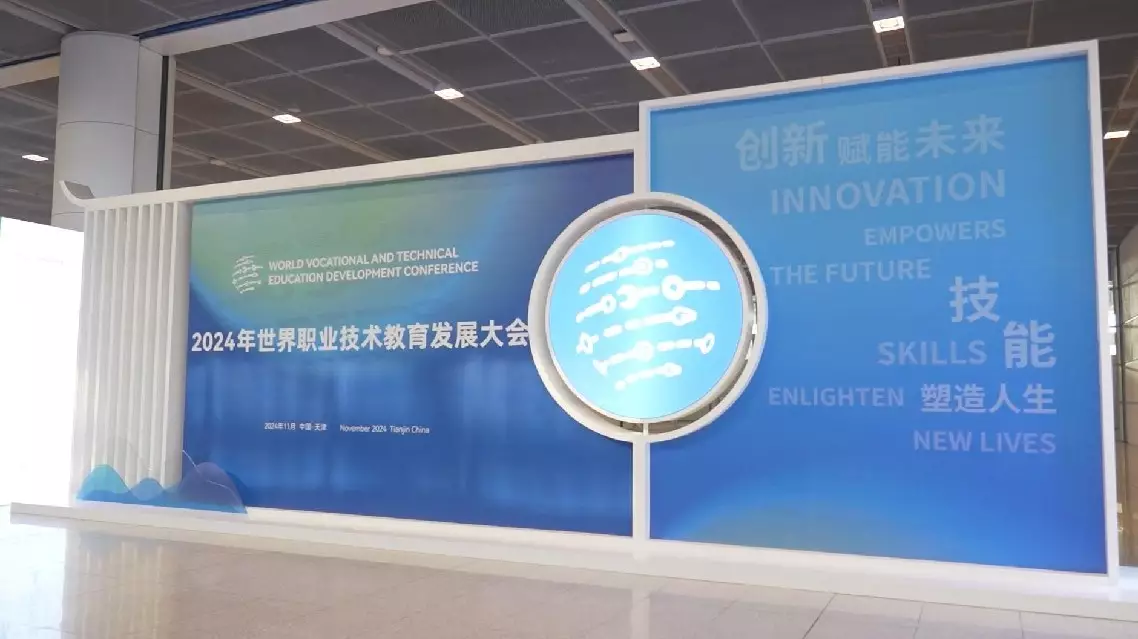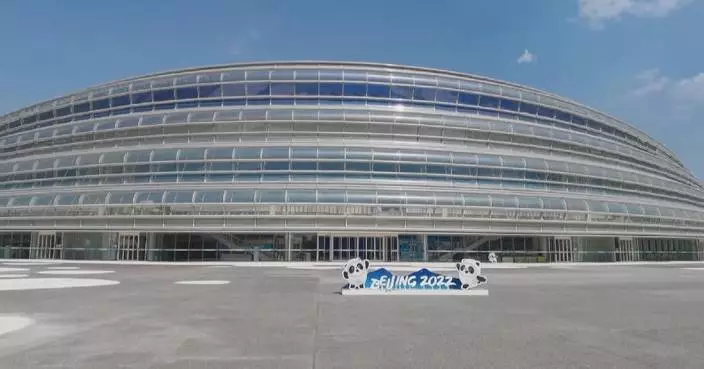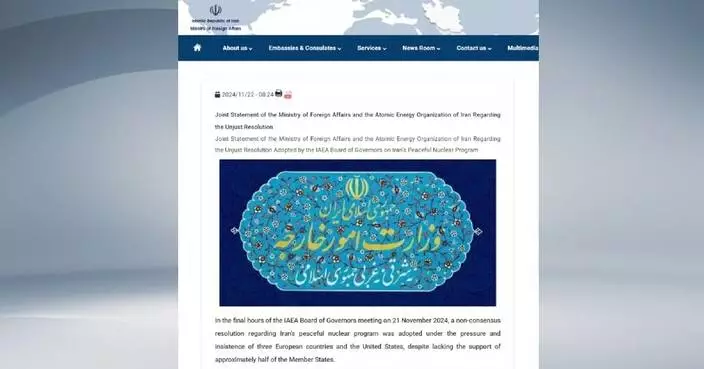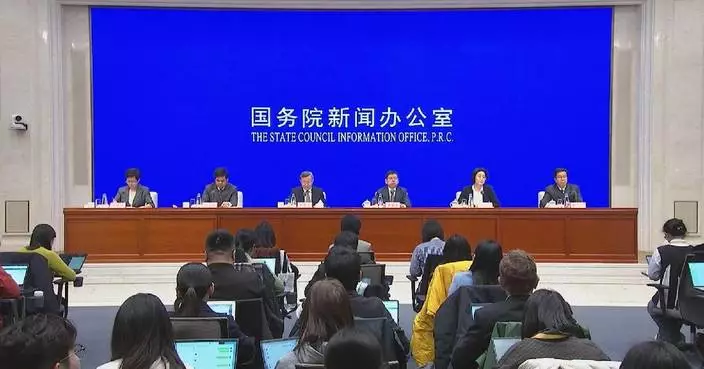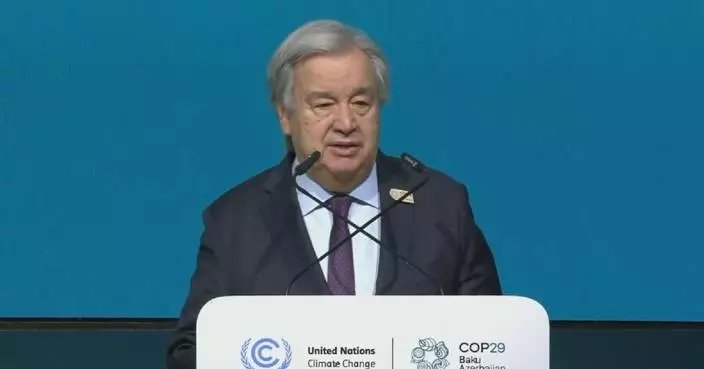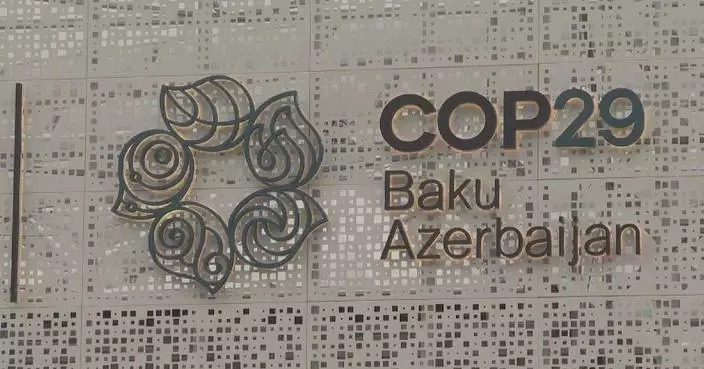A sprawling solar power plant covering thousands of acres in northern China's Kubuqi Desert is spearheading the country's drive towards a greener future, revitalizing the once barren landscape and helping combat climate change.
The power station located in Dalad Banner, an administrative region in Inner Mongolia, boasts 196,000 solar panels that were installed in the pattern of a galloping horse when viewed from above. It forms only part of a larger solar farm that's able to provide enough clean electricity for over 300,000 people annually. Together with four other similar solar farms stretching across the western part of Inner Mongolia, they form what's called a solar panel Great Wall.
In an interview with China Global Television Network (CGTN), Li Kai, director of the local Energy Bureau Office, said the scale of the solar farm is still expanding.
"Currently, the new energy projects in Dalad Banner have reached over 3 gigawatts. By around 2030, the total power generation capacity of all new energy projects in our county will reach 40 billion kilowatt-hours. At that time, one out of every three lights in the Beijing-Tianjin-Hebei region will be powered by electricity generated here," he said.
Currently under construction, this 21st century "Great Wall of Clean Electricity" is planned to be 400 kilometers long and an average of 5 kilometers wide, and is expected to contribute to ecological management of 9 million mu of desert and PV management of 3 million mu, while supporting 10 gigawatts of new energy capacity.
A solar farm like this one saves 680,000 metric tons of standard coal annually and reduces CO2 emissions by 1.65 million tons each year.
Tian Ye, a duty officer, told CGTN that the integrated control room where he works can monitor five solar power plants in this region.
"Here, we can remotely monitor and maintain the operations. When a fault occurs, the system provides a warning, allowing us to coordinate with on-site maintenance personnel who carry out the necessary repairs. For more common faults, the repair time is typically around half an hour," he said.
In addition to providing clean energy, the vast array of solar panels serve as a first line of defense against desert sand blowing into the Yellow River, better protecting water quality and the communities that rely on it.
The solar panels also play an important role in combating desertification by allowing vegetation to grow underneath them, according to Ao Xiaohu, director of engineering management for the operating company. The shade provided by the solar panels creates this microclimate underneath, which better retains soil moisture from evaporation by sunlight.
"During our construction process, we strive to preserve the original landscape as much as possible. Depending on the soil conditions, we introduce more resilient grasses and medicinal plants for cultivation. Under the solar panels, we integrate grazing and agriculture to boost economic benefits," he said.
Ao said that with the transition from coal-fired power companies, traditional and new energy sources work hand in hand; during the day, solar panels generate electricity, while at night, the traditional thermal power plant takes over, ensuring a smooth flow of electricity throughout the day.
"Inner Mongolia Energy Group used to be a traditional coal-fired power company, with over 90 percent of its total installed capacity coming from coal-fired power and only about 5 to 7 percent from renewable energy. Through two years of energy transition, the installed capacity of new energy projects under construction and already in operation now accounts for more than 70 percent of our total capacity. Our future goal is to further advance the development of a large modern energy enterprise, primarily based on renewable energy," he said.
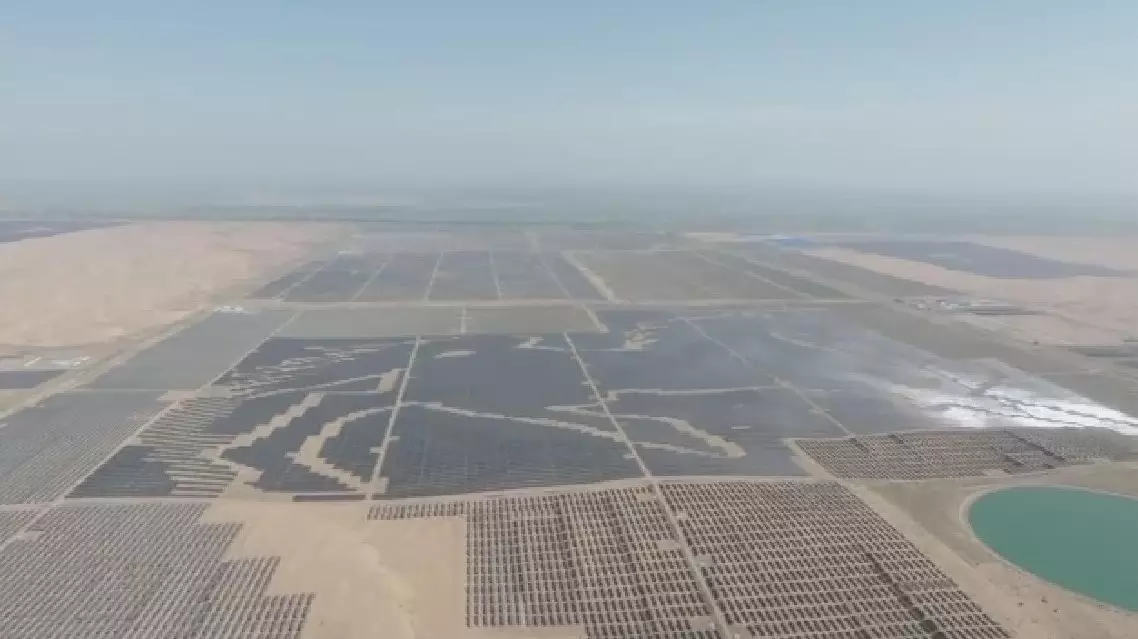
Inner Mongolia's "Solar Panel Great Wall" powers China's green future
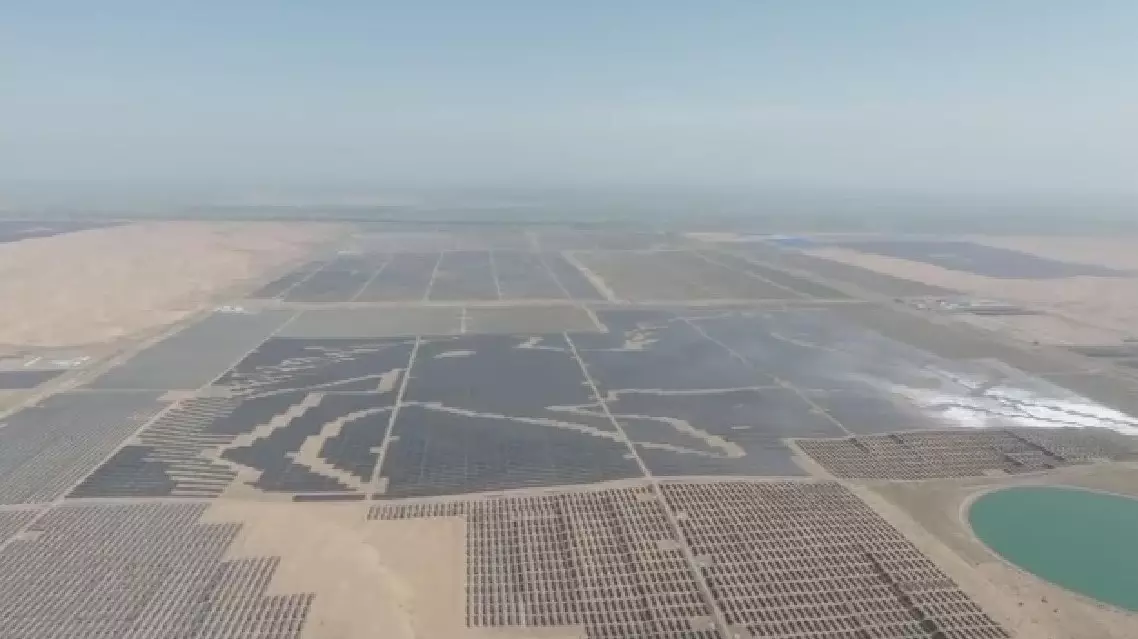
Inner Mongolia's "Solar Panel Great Wall" powers China's green future


